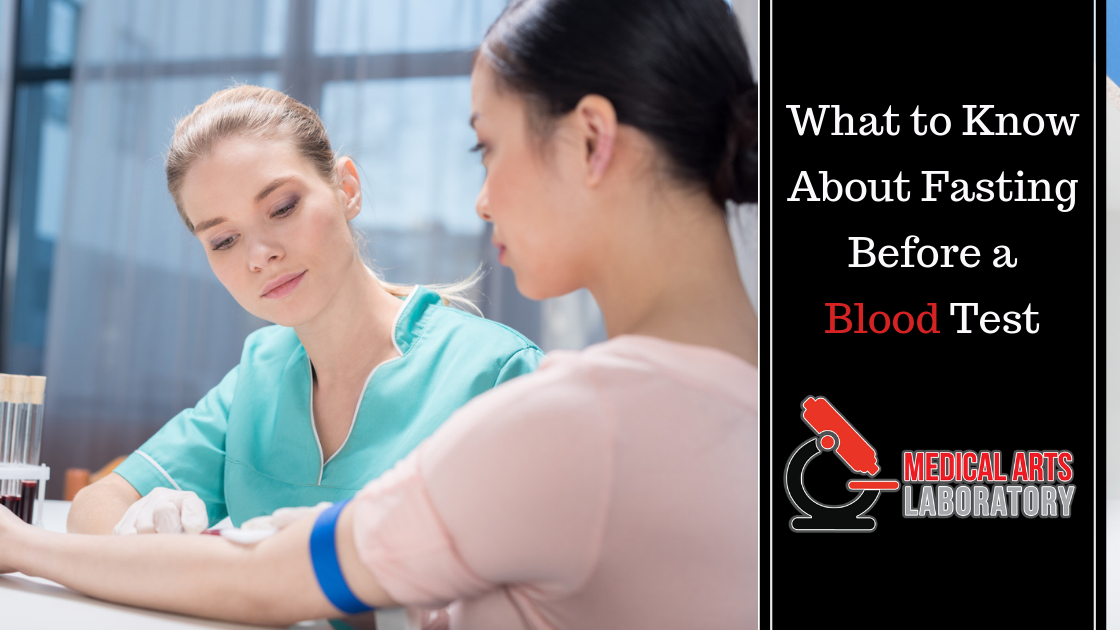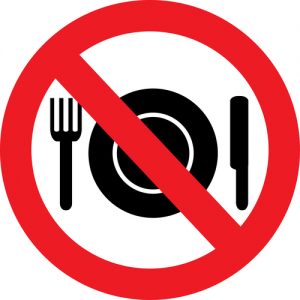
19 Nov What to Know About Fasting Before a Blood Test
In previous blog posts, we discussed how frequently you should have a blood exam, and what to expect during a blood exam. In preparation for these tests, there are specific requirements to follow, one of which is fasting. Keep reading to learn how food can impact blood test results, and which ones you will be requested to fast for.
Can I Eat Before a Blood Test?
 While tempting, food is not a friend of blood exams. But how can food alter test results? The nutrients your body absorbs from food – minerals, vitamins, proteins, fats and carbohydrates – can affect blood level readings. This may potentially cause inaccuracies in comparison to normal levels. To prevent this, your doctor will require you to fast from 8 to 12 hours prior to a test. Times will vary by test, and some will have fewer or more specific foods to refrain from.
While tempting, food is not a friend of blood exams. But how can food alter test results? The nutrients your body absorbs from food – minerals, vitamins, proteins, fats and carbohydrates – can affect blood level readings. This may potentially cause inaccuracies in comparison to normal levels. To prevent this, your doctor will require you to fast from 8 to 12 hours prior to a test. Times will vary by test, and some will have fewer or more specific foods to refrain from.
Which Blood Tests Require Fasting?
Although not every blood test involves fasting, many annual blood exams do. Your doctor will be able to explain the extent of the fast necessary. If you are unsure, or have any questions, be sure to ask. You should also inform your doctor of any medications or supplements you take regularly, to ensure they won’t influence the test results. Some common tests that require fasting include:
- Cholesterol
- Triglyceride level
- Basic metabolic panel
- Liver function
- Blood glucose
- Lipoprotein panel
- High-density lipoprotein
- Low-density lipoprotein
- Renal function panel
Can I Drink Anything Before Fasting?
People often assume drinks are fine before a blood test, however, water is the only liquid you should consume. In fact, drinking several glasses of water at least two days prior to the test will make blood easier to draw. It will hydrate your body, making veins more plump and accessible. Avoid all carbonated or flavored drinks, and even the smallest amount of lemon or coffee. Besides food, do not smoke, chew gum or exercise. All of these, no matter how insignificant you may consider them to be, can impact your blood levels.

Above all, be honest with your doctor. If you accidentally slip up and have a snack or drink, inform him or her immediately. There is a small chance they will still perform the test, and add a note stating an increased risk of inaccuracy. However, it’s more likely that the test will be rescheduled. While inconvenient, this is for your benefit. Ensuring the most accurate results will mean that you are more accurately diagnosed and treated, if necessary.
At Medical Arts Laboratory, we offer a wide variety of services and outstanding customer service. With no-wait time blood draws, and same-day results, you have convenient access to pertinent health information faster than ever. Contact us to learn more, or walk in today!




No Comments